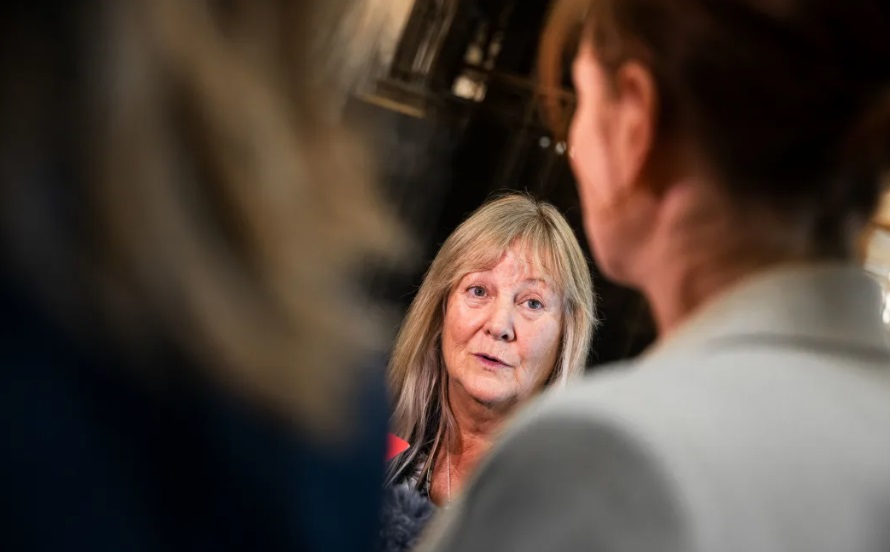
The changes made to disability funding this month will remain, however, despite a top-up in funding to ensure the ministry can continue funding services through to the end of the year.
Whaikaha, the Ministry for Disabled People, unveiled changes last week to purchasing rules for disabled people's equipment and modifications supports and services, and respite funding.
Disabled people, carers and sector groups said the changes would have a massive impact, complained of a lack of consultation and unclear communication about the rule changes. Labour said it was a cut to frontline services and a broken promise from the coalition government.
Disability Issues Minister Penny Simmonds said the changes were made because Whaikaha was days away from reaching the end of its Budget, and acknowledged the changes had not been adequately communicated.
Cabinet takes control, launches review
Speaking to reporters before a caucus meeting on Tuesday morning, Finance Minister Nicola Willis said future decisions by the ministry about funding would go to Cabinet to be signed off.
They would also be properly consulted with the community, and the overall system would be reviewed, she said.
"Any further decisions that ministry makes about changing its criteria, its funds, needs to be properly consulted, properly sequenced, it needs to go to Cabinet before they enact it.
"We've also requested that the minister return to Cabinet with the terms of reference for a review of how we are going to manage this area in future."

Prime Minister Christopher Luxon acknowledged the changes were not handled as well as they should be, "by our own admission - and you've seen an apology from the minister and from the ministry".
He said the move to put all disability decisions before Cabinet was because the government wanted to make sure "any serious major change to frontline services" would come before Cabinet.
"In this case it didn't. It was poorly consulted and poorly communicated, and it's right that she apologise for it as did the ministry."
But he defended the minister.
"I think she's doing a great job ... she came out, declared it could have been done better, and it should have been handled better and it wasn't and she's apologised for it."
Labour leader Chris Hipkins said the move was a "massive vote of no confidence" in Simmonds.
"That's an extraordinary step to take, basically saying that a minister's not able to take decisions in their own portfolio without going to the whole of Cabinet," he said.
"It's a massive vote of no confidence in Penny Simmonds by the prime minister and by her Cabinet colleagues ... I would actually expect if the prime minister has that little confidence in a minister that he would do something more than that."
Simmonds said the government had realised there some systems and processes missing at the ministry.
"We're intending to do a review to look at those systems and processes and so in the meantime it's really important that we keep Cabinet abreast of what's happening in there."
Funding top-up
Willis said funding for the ministry was being topped up in the 2024 Budget.
"Cabinet has agreed to ensure that the ministry for disability services has the funding it needs to get through to the end of the financial year," she said.
Simmonds said the restrictions on the ministry's purchasing rules would, however, not be removed.
"No, they won't be because even with the additional funding there is still a real risk of them running out of funding," she said.
She said it was "enough to ensure that they don't go unappropriated by the end of the year but it is still a possibility that they are at risk so we have to ensure that the guidelines that we needed to put in place to ensure clarity are still there.
She said enough money had been given to the ministry to get it to the end of the financial year, but even with additional funding there was still a risk of the ministry running out.
"Certainly what we were talking about was the equiment and the modifications were certainly at risk, that we had to ensure that those could still continue."
Simmonds said the restrictions were put in place so the ministry could manage the sustainability of its funding.
Asked if she stood by her comments that the changes were being made because the money was being claimed for massages for carers, Simmonds said it was "a very unusual situation to have very few guidelines around funding of that level"
"It is necessary for us to give clarity around what the funding can be used for."
She said she "didn't blame anyone for getting massages, people that were using the funding at that time, that was the settings that were available to them ... Whaikaha have now put in guidelines around that, that doesn't include massages."
Willis blamed the previous government for not committing as much funding as the system needed. Details of how much had been allocated were likely to be Budget sensitive, she said.
Hipkins said the previous government set up a flexible needs-based system because it was the best way of supporting people living with disabilities, and the demand for it showed it was a good approach that was meeting a need.
"I think if we had known from the beginning that the need was going to be that much greater than we had budgeted for, we would have made sure we budgeted for that, but the reality is until you set these systems up you often don't know that," he said.












